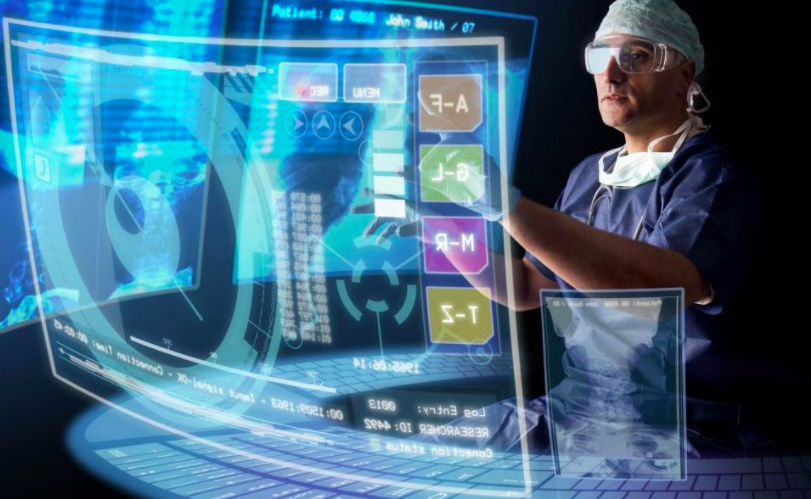August 04, 2021
2067
As early as 2008, IBM put forward the concept of "smart medical care", which is mainly to combine the Internet of Things and AI technology in the medical field to realize medical information interconnection, sharing and collaboration, clinical innovation, diagnostic science, and public health prevention. Now Due to the power and application of big data and 5G technology, smart medical care has once again become the focus.
Advantages of Smart Medical
In terms of advantages, there are many application scenarios for smart medical care and it is also a process of continuous development. I personally feel that the most fundamental advantage lies in the liberation of medical resources and medical data, which means that smart medical care can alleviate the shortage of doctors' resources and realize centralized management of data.
1. Alleviate doctor resources
Intelligent medicine solves the problem of the scarcity of medical staff in the future. The training process of human doctors is very complicated, and the cost is relatively high, and the training time is relatively long. Even after more than 10 years of training, he may not be able to become a very good clinical doctor, and he needs a lot of experience.
Artificial intelligence is different. With the acceleration of computing speed and the improvement of algorithms, it can quickly give some guidance on some common diseases in current medicine, which are which diseases, which require in-depth research, which examinations require further investigation, and where to consider , Can give doctors some help, and then effectively solve the problem of insufficient doctor resources, and smart medicine can provide medical services anywhere in the world year-round.
2. Centralized data management
There are two manifestations in the era of intelligent medical care: multiple data and multiple terminals. Intelligent medical care can enable sensor equipment and home medical equipment to automatically or self-collect human vital signs data, and at the same time, it can integrate existing in-hospital, out-of-hospital, and genetic medical data. , Realize the extensive sharing and in-depth utilization of data, and provide long-term, rapid and stable health monitoring and diagnosis and treatment services to sub-healthy people, the elderly and patients with chronic diseases at a lower cost.
Disadvantages of Smart Medical
1. It is difficult for smart medical care to transmit the temperature of the doctor's face-to-face consultation in a short time
Dr. Trudeau once made an objective evaluation of clinical medicine: "Sometimes healed, often relieved, always comforted." Therefore, it is common for patients not to be cured, but relief and comfort are essential. This is also true. The job of a doctor also reflects the doctor's respect for life, and reflects a doctor's humanistic care and noble sentiment for the patient.
However, it is more difficult for intelligent medical treatment to solve the problem of human health in a short period of time. It takes time for AI medical treatment to reach the temperature. The emotional communication of patients, disease care, and postoperative care all require the emotional participation of doctors.
At present, the care and comfort of smart medical care for patients is far from the doctor's face-to-face consultation. I have visited many patients in offline hospitals. They always ask the doctor as soon as they arrive at the hospital, how is my illness? , Is it almost healed? In fact, they seek psychological comfort. Most of the doctors' answers are also psychological counseling, so the patient's dependence on doctors is still very high.
2. The privacy protection of smart medical care faces unprecedented threats and challenges
Traditional information leakage such as the leakage of mobile phone numbers and ID card information will also cause great threats and losses to users. In the field of artificial intelligence medical care, it will only increase unabated, and the threat may even be even greater. Users lose more than just A single dimension of information may be all important data information, including personal disease history, whether it is deformed, whether the gene is defective, whether there is a family genetic history, etc.
The illegal sharing and dissemination of these data information is extremely fast. Once exposed, it is easy for criminals to conduct data fraud, identity theft or other attacks, which will affect a person's normal life and even marital problems.
The big data that smart medical care relies on is still fragmented and non-standardized
For hospitals and clinics, a lot of data is still not automated. There are still doctors using paper text entry, the effect tracking of patients after taking drugs is lost, electronic medical records are not perfect, and many data are still non-standardized.
This series of problems will hinder the data mining processing and in-depth analysis of medical institutions. More importantly, the hospital information system data lacks a unified standard, which causes great difficulties for data sharing and data alliances in the medical industry. The complex problems of technology, interest, and policy interleaving eventually lead to the fragmentation of hospital data and become their own information islands. Therefore, the automation of hospital data and the hospital becoming a data management and decision-making center are still facing the problem of slow development.
